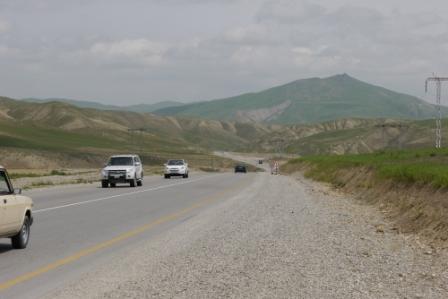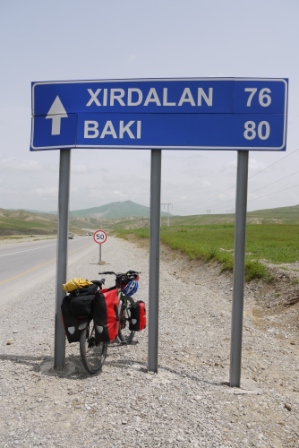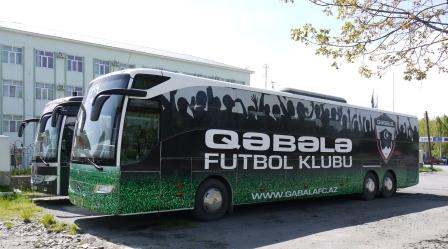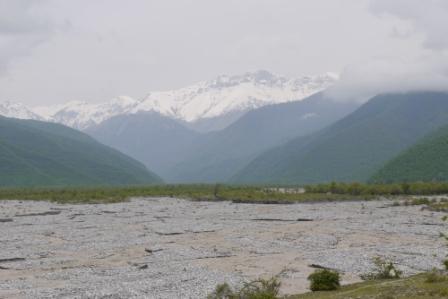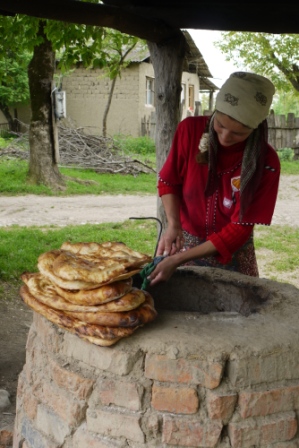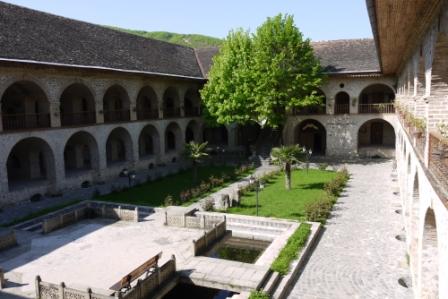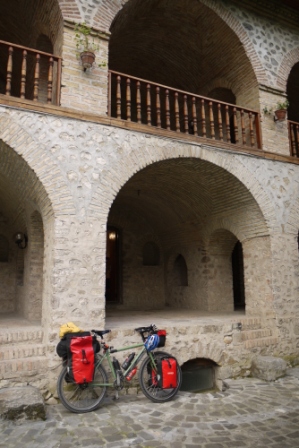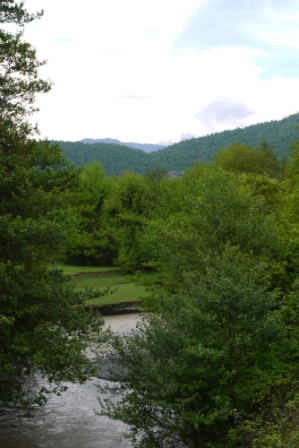Progress was slow, carefully picking a path through the multitude of potholes. Despite the heat, the track still muddy from thunderstorms the previous night. I’d opted for the direct route – the old road – from Zaqatala to the small town of Kakh (also known as Qax). Started well enough. I’d contemplated turning back as the road surface deteriorated, having hoped for quicker progress to my eventual destination, the town of Sheki. But then there’d be a teasing stretch of tarmac, suggesting the worst was over. So I kept going. And then Kakh. Not so bad after all, just slow.
Thirsty, I’d stopped at one of Kakh’s small shops. The road outside was unmade, but inside it was modern, smart, and but for a few less familiar items on its shelves, I could have been back in the UK. Enquiring about the road ahead – forty or so kilometres to the town of Sheki – a small committee formed, the debate intense. Roads, I learnt, were described as narrow or wide, which also, it seemed, equated to unmade or made. The outcome was that I should return to the main road, rather than take the direct route. It’d be much quicker.
In the midst of the discussions one man had offered to take me to his house for food, indicating I should leave Emma inside the shop. A generous offer, and I’d liked the young, helpful couple that ran the place, but leaving everything I had with strangers was out of the question. So, I explained the banana I’d just eaten was sufficient when cycling, anything more and I might be sick. Just hoped he didn’t misinterpret my various animations.
Seven hours later I reached Sheki, forty kilometres from Kakh by the direct route. True, it was fairly swift riding, the roads good. But what had appeared to be twenty or so kilometres longer on my map was actually more like a hundred, little shade, hot, uncomfortable. Long, drawn out climbs, gentle but subtly sapping your energy.
Realising I was in for a long, steady haul, not the relatively short day I’d hoped for, I stopped in the late afternoon for a decent snack at a roadside cafe. A few tables neatly arranged in a grove of trees, welcome shade. Unsure of what was on offer, I wandered into the kitchen. In the dim interior the cook showed me various pots simmering on the stove. I plumped for one, indicated just a small serving, and waited to see what turned up.
Back outside in the relative cool beneath the trees, I was joined at my table by the enthusiastic owner. I’d not long been explaining my venture when the food arrived. Tasty liver and potato stew, generous side order of fresh vegetables, bread and a glass of some sort of set yoghurt. Thought I’d give dairy a miss, but otherwise an impressive spread. Payment was emphatically refused, and I left with a bag of small cakes and a stash of chocolate to boot.
